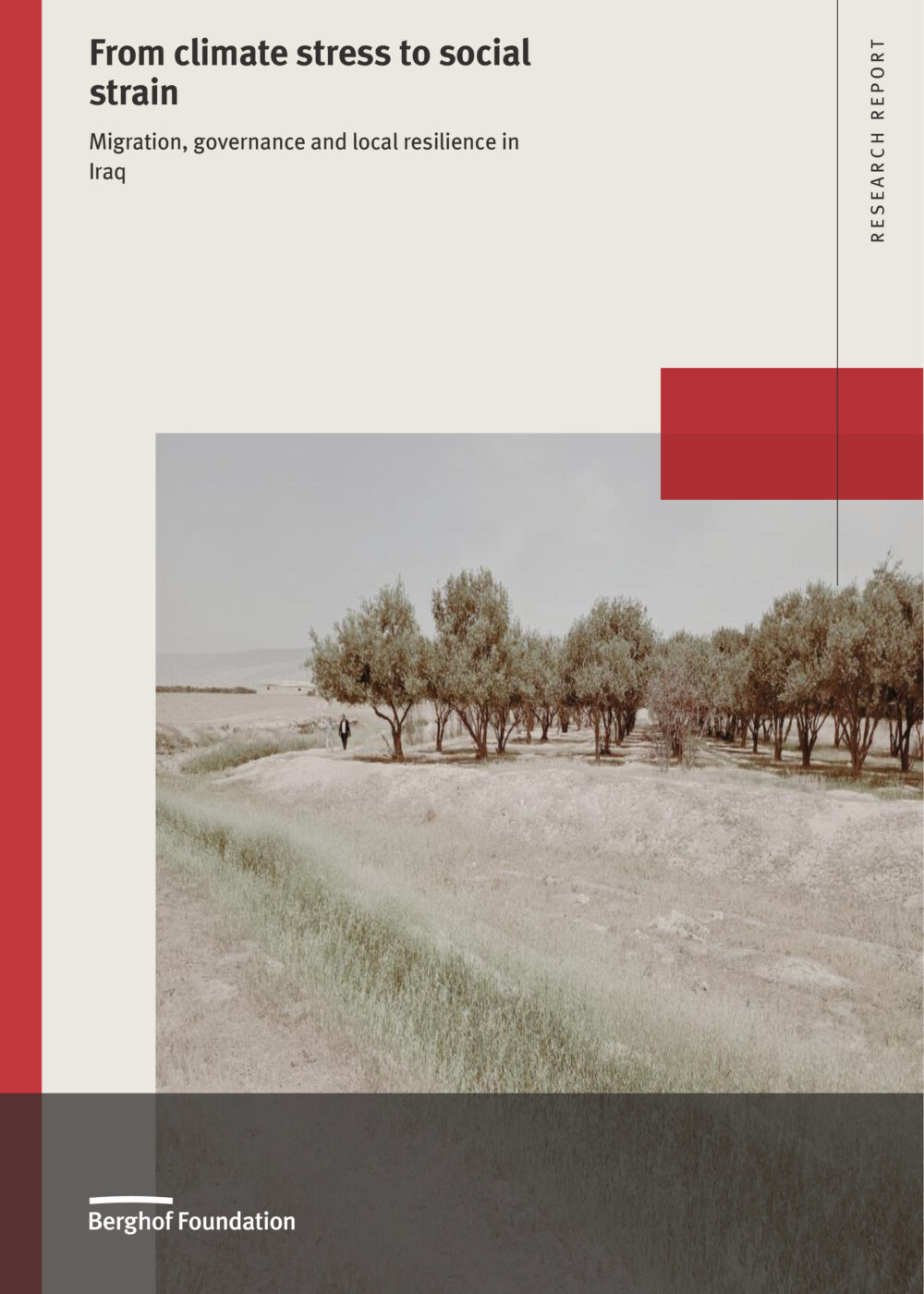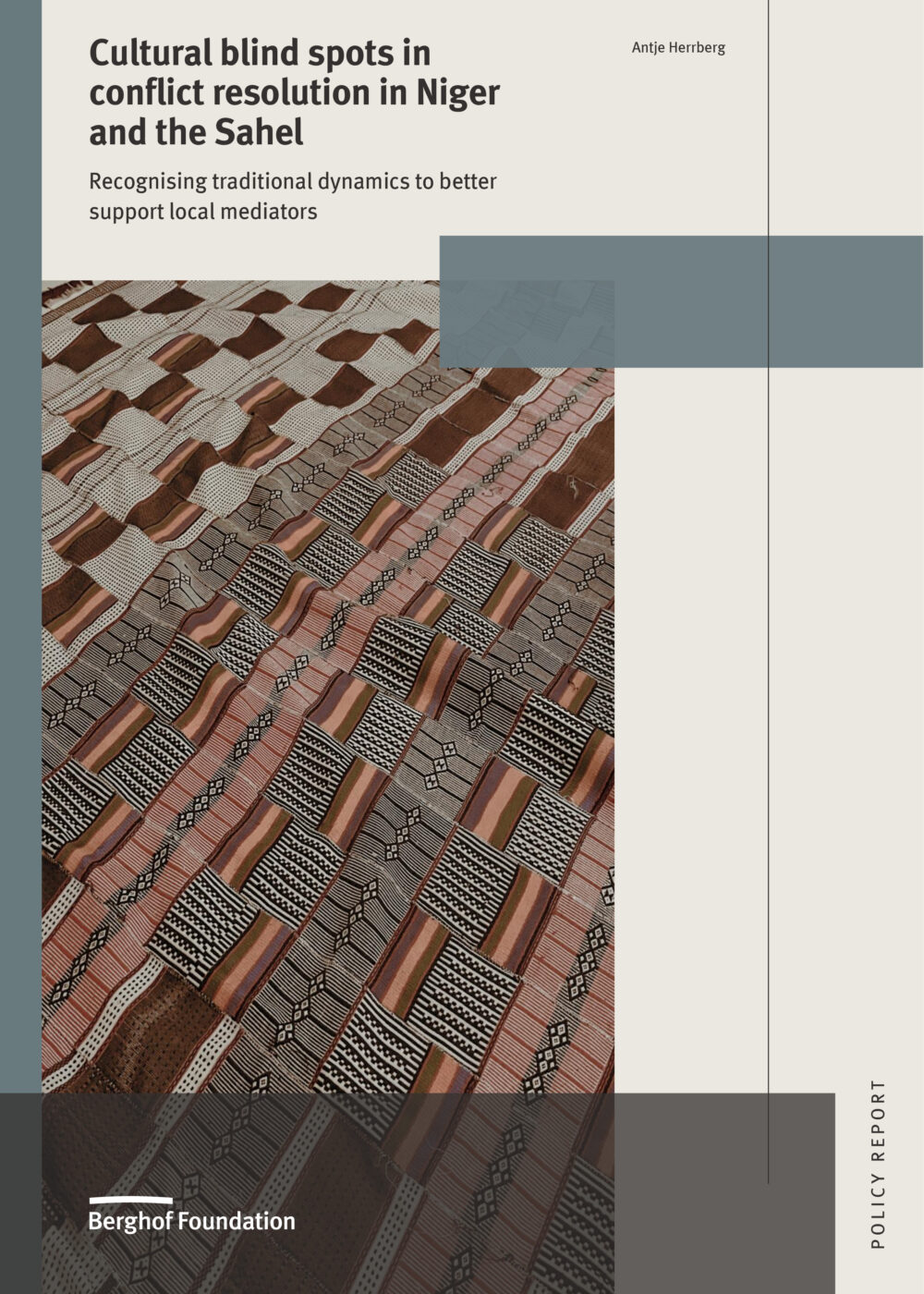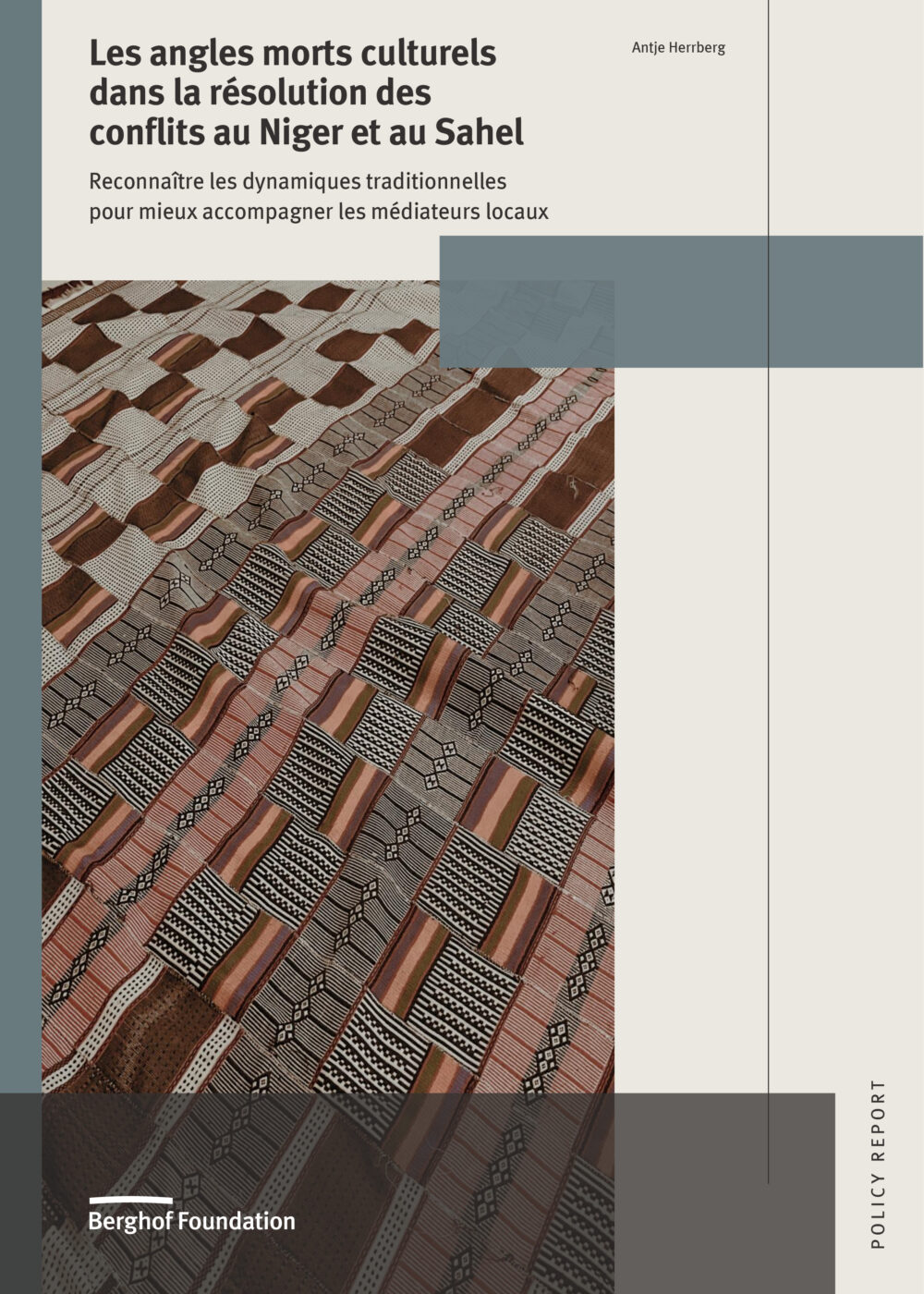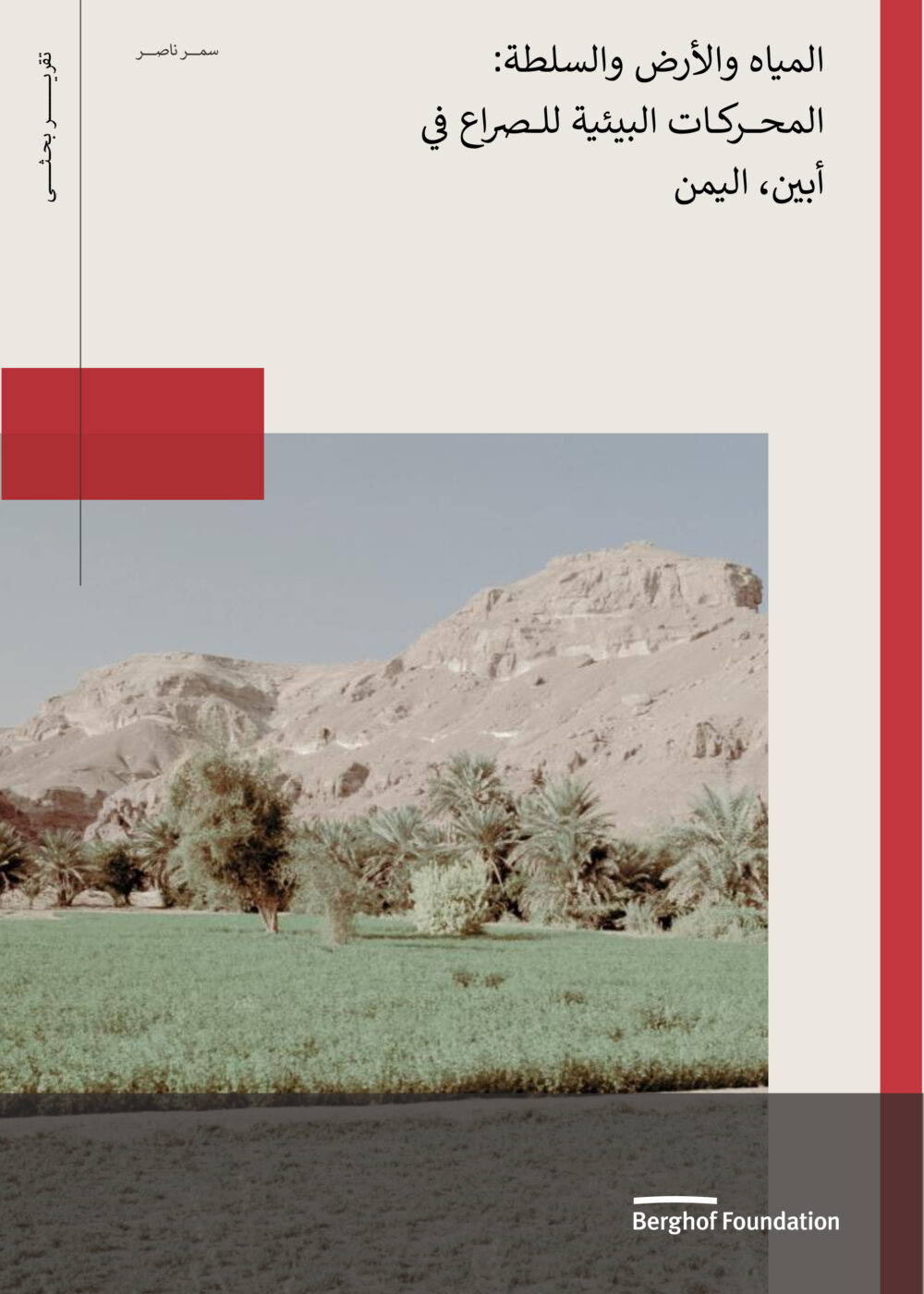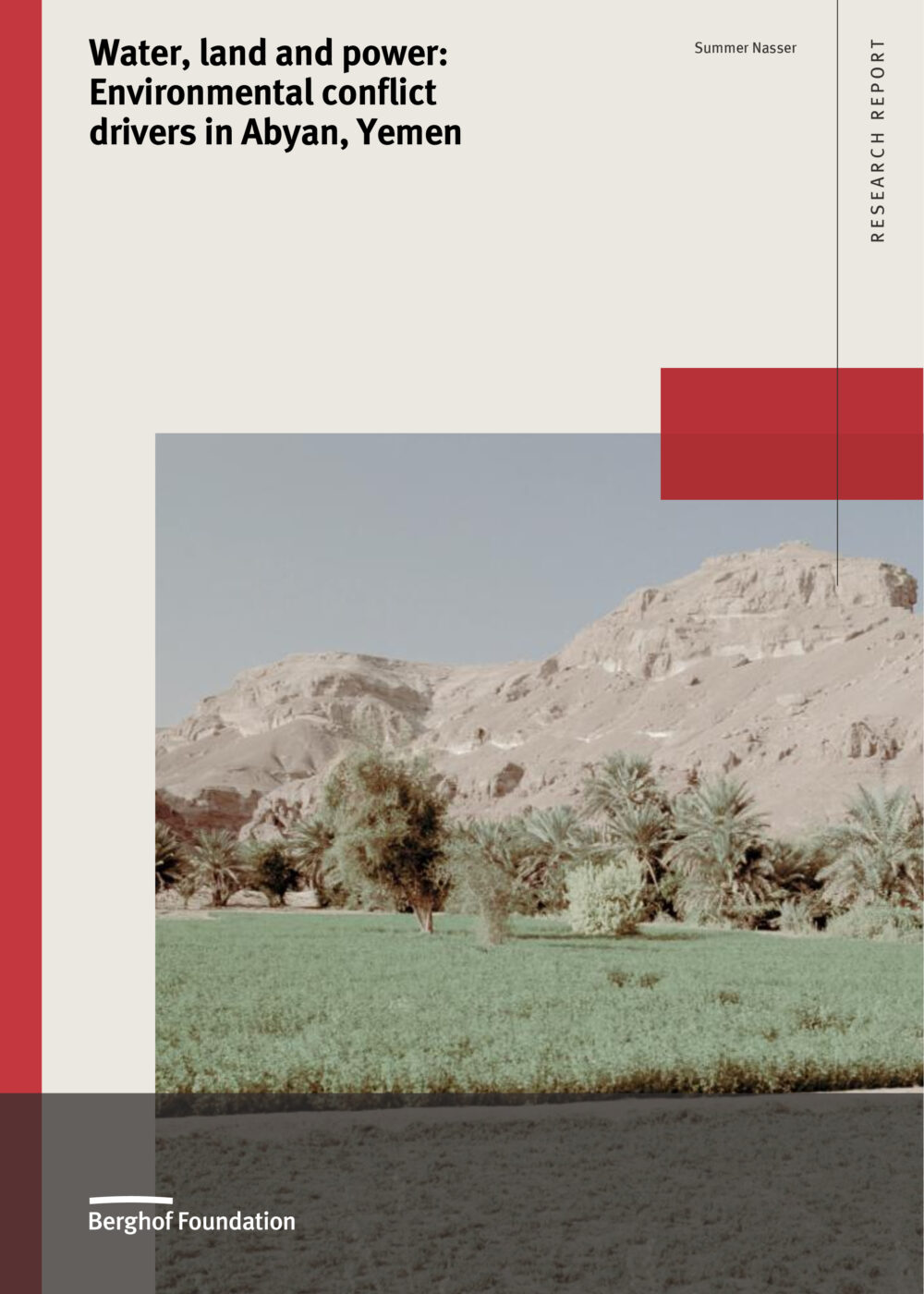31 Oct 2016
“Undeclared Wars”– Exploring a Peacebuilding Approach to Armed Social Violence
Handbook Dialogue Series No. 12 - complete
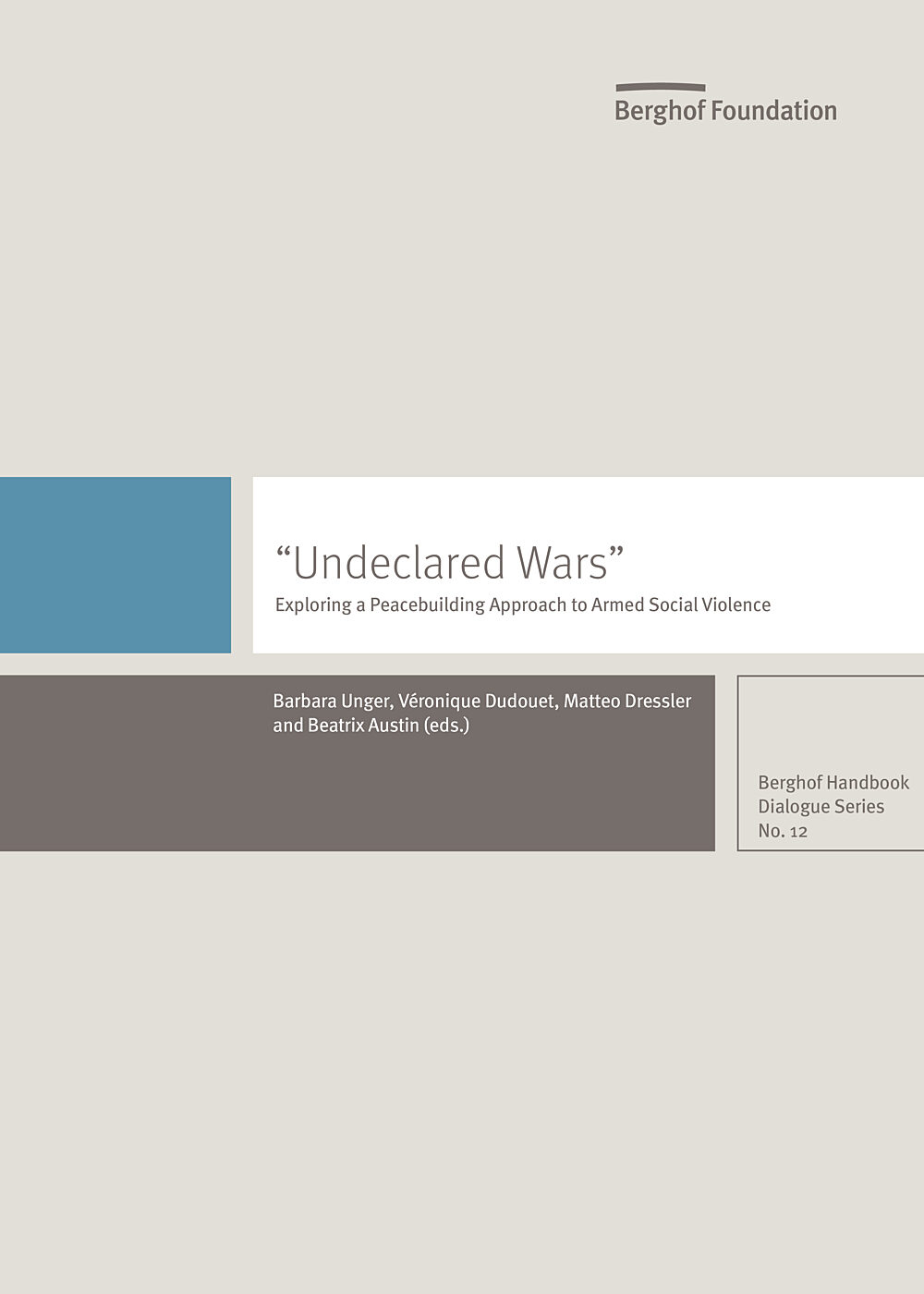
In some countries, more civilians are being killed by armed gangs and criminal organisations than in traditional combat. Still, these pockets of armed social violence – "undeclared wars" marked, among other things, by criminal, gang and/or urban violence as well as extremist violence – have long received much less attention than politically motivated forms of armed conflicts. As their effects — social-political destabilisation, in some cases coinciding with high numbers of victims — are becoming more pressing, national and international actors have begun addressing the phenomenon.
Editors
Barbara Unger, Véronique Dudouet, Matteo Dressler, Beatrix Austin
In this 12th Berghof Handbook Dialogue, the authors of the lead article, Bernardo Arévalo de León and Ana Glenda Tager, argue that the inclusive and participatory methodologies offered by peacebuilding provide an operational strategy that would allow the international community to engage successfully with issues of armed social violence.
Five sets of respondents explore the actors, factors and dynamics of violence in different settings (among them Colombia, the UK, Nigeria, Mexico, Myanmar and Guinea-Bissau). They debate issues as diverse as the inter-connectedness of political, social and private violence, the need to work closely with government agencies, civil society and agents of violence, as well as the merits of specific participatory methodologies. They discuss what peacebuilding and other initiatives have achieved, and where they have fallen short. The Dialogue is rounded out by an introduction by the editors and a "response to the respondents by the lead authors".
Thanks for your interest
If you find this publication useful, please consider making a small donation. Your support enables us to keep publishing.



